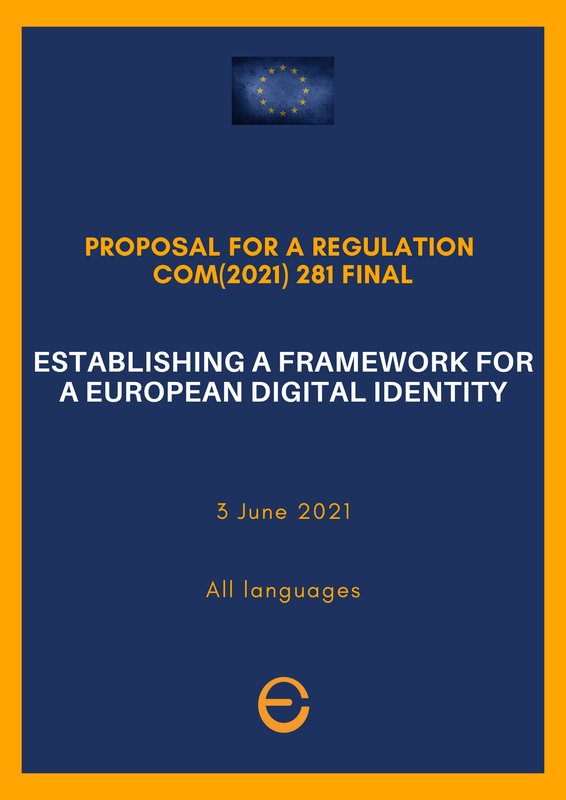|
Brussels, |
|
DIGITAL EUROPE
eID - Digital Identity
The EU is actively working on the development of the European Digital Identity (eID) framework. The aim is to provide citizens and businesses with a secure and trusted means of identification and authentication across the European Union. The eID will enable individuals to access online services, conduct electronic transactions, and interact with public and private entities seamlessly. The EU is promoting interoperability among national eID schemes and exploring the use of emerging technologies like blockchain for secure and user-centric digital identity solutions.
The EU is actively working on the development of the European Digital Identity (eID) framework. The aim is to provide citizens and businesses with a secure and trusted means of identification and authentication across the European Union. The eID will enable individuals to access online services, conduct electronic transactions, and interact with public and private entities seamlessly. The EU is promoting interoperability among national eID schemes and exploring the use of emerging technologies like blockchain for secure and user-centric digital identity solutions.
|
The EU Regulation on eID
On 6 June 2021, the EU Commission has presented a proposal for a Regulation which the Council and the European Parliament are examining with a view to its adoption. Once adopted, all European citizens and residents will be able to have an electronic identity document valid throughout the European territory and not only, as today, on the national territory. In addition, the digital document must allow you to carry out many bureaucratic, administrative, banking and legal obligations. The Commission conceived the European Digital Identity for numerous applications, for example:
|
In order to become a powerful personal document, the Commission conceived that it should be:
- available to any EU citizen, resident, or business in the EU who wants to use it
- widely useable as a way of identification or to confirm certain personal attributes for the purpose of access to public and private digital services across the EU
- in full control to users to choose which aspects of their identity, data and certificates they share with third parties, and keep track of such sharing


